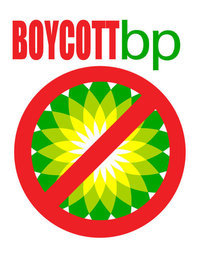
April 20th, 2011, marks the one year anniversary of the Deepwater Horizon disaster.
I mark the BP Spill as a point in time which it became even more clear to me that the United States government is invested in protecting corporations and industry over protecting its citizens from harm.
The reckless disregard for both human life and the environment of BP and Transocean has not met with any criminal prosecution. Serving as an example that a company is free to cause death and mayhem without any consequences but an individual who caused the death of eleven workers and poisoned the Gulf for decades to come would receive no such special treatment.
America continues to be a cowardly nation when it comes to holding the people responsible for the industrial homicide that took place one year ago.
Add atop all this that the government lied to the public regarding the location and magnitude of the spill on multiple occasions and approved a toxic dispersant that has been banned in the U.K. to be sprayed into the environment in quantities previously unheard of for use in an oil spill clean up.
Considering all this I don’t trust the EPA or the federal government when they proclaim the seafood as safe as the Gulf as non-toxic. The health and safety of the public is secondary to promoting the needs of the private sector industry forces, so if the feds and the EPA have to lie and cause a few people to get sick as a direct result then that is exactly what they will do.

As a single solitary citizen there is not much I can do to bring the inhuman monsters responsible for this to justice nor can I hope to see those in the EPA and the federal government who would lie to public be fired and replaced with people who would actually do their jobs rather than bend knee to the oil industry. Beyond voicing myself on a blog the only avenue I have to act upon is this: boycott BP forever.
A corrupt government we can change, though I don’t see it as an easy road it is entirely possible if people only stand together in a common cause. But changing a multinational corporation is much more difficult than changing a government and in all reality corporations are beyond all laws and beyond taking responsibility for the death and destruction they bring about in their narrow, greedy quest for ever-increasing profits. When faced with such a power the only recourse of a ordinary person is to not contribute to the empire of death with everyday purchases like gas or food.
When every former BP station has rebranded itself and the company is treated like the pariah they are in the United States then I might consider reviewing their corporate policies and considering putting an end to the calls for boycott, but not a moment before.
If consumers continue to reward corporations guilty of industrial homicide with business then there shall never be any hope of a private sector that doesn’t cause these horrific disasters in the first place.



